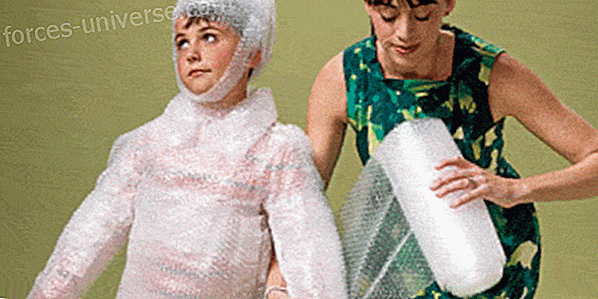The effects of television on the social and emotional development of children
The time that a child spends in front of the television is time that remains for other important activities such as reading, school work, play, interaction with the family and social development.
Children can also learn things on television: some may be educational and others inappropriate or incorrect. In most cases, children do not know how to differentiate between content that suits them and those that do not, just as their naivety makes it difficult to distinguish between the fiction presented in the television and reality.
When children are watching a television program, they are also under the influence of numerous commercials, some of which are alcoholic beverages, prep meals Fast and toys.
 The risks of watching too much television for children
The risks of watching too much television for children
Children who watch too much television are exposed to a greater number of risks to their intellectual and emotional development. Some of them are the following:
- Get bad grades at school. It happens by devoting more time to television than to homework and study.
- Read less books. Too much television takes time to read.
- Do less physical exercise . Television poses a serious danger of sedentary lifestyle for children.
- Having overweight problems . Sedentary lifestyle coupled with increased consumption of snakes and caloric products during the time they spend sitting in front of the television can increase their risk of obesity.
- Become passive children. The speed with which the sequences of television images pass can cause children to lose themselves through other traditional games, which for them, become slow, boring and without interest.
- Partially understand the seen. Violence, sexuality, stereotypes of race and gender, and drug and alcohol abuse are common themes in television programs. Children are impressionable and can assume that what they see on television is normal, safe and acceptable. Consequently, television also exposes children to types of behavior and attitudes that can be overwhelming and difficult to understand.
Advertising on television and children
Children are the big ones exploited by television advertising. Toy manufacturers earn millions each year by launching their children's products to the market. Weekends and holidays are your favorite seasons, when even more economic benefits are generated. In addition, television advertising projects stereotypes related to racial, social, cultural, sexual aspects, as well as eating habits.
According to North American studies, an average of 23 advertisements are issued per hour, which suggest cereals, cookies, fast foods, soft drinks and treats. That excessive number of commercial advertisements that suggest food is related to childhood obesity. On the other hand, the exaggerated representation of perfect body images can contribute to the problem of anorexia nervosa, especially in adolescents, due to the anxiety it causes. If an overweight child learns on television how important it is to maintain the form in an exaggerated way, he will develop complex and consequently follow the advice and diets they say on television, apart from the wrong values he will be assimilating.
More than half of the advertising contains erroneous, misleading information or both, but that children believe to be true . Thus, television not only offers but imposes experiences and conditions on our children, because they are the main target towards which most commercials are directed.
Source : http://www.guiainfantil.com
The effects of television on children

 The risks of watching too much television for children
The risks of watching too much television for children 




